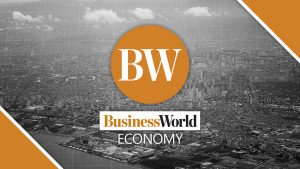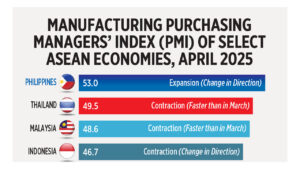Unpacking the fiscal battleground of the 2025 Philippine elections

Less than a week before the 2025 midterm elections, the air crackles with promises, rhetoric, and the tug-of-war for the hearts and minds of voters. But, beyond the focus on personal appeal and platforms to win votes through touching promises of a better future.
A crucial battleground is continually emerging: taxation. Tax policy, far from being a purely economic concern, is poised to define the upcoming elections and the future of the economy.
The Philippines, like many developing nations, wrestles with a complex fiscal and taxation reality, grey areas in tax law, and copious bureaucracy. The lingering economic scars of the pandemic, coupled with inflation and persistent social inequality, have brought tax policy into sharp focus. Voters are, as they should be, no longer content with vague promises; they demand concrete plans on how candidates intend to fund their ambitious ideas and agendas, more than how these will be implemented, while wishing for reduced taxes and, if not possible, a freeze on escalating rates on taxes already imposed, and ensuring a more equitable and transparent distribution of national wealth.
TRAIN, CREATE AND EOPTThe last administration left behind a complex fiscal legacy. The Tax Reform for Acceleration and Inclusion (TRAIN) Law, which was praised but also has been a magnet for criticism, particularly regarding its impact on consumer prices, because it lowered individual income tax rates, increased tax-exempt income, and offered an optional and simplified 8% flat tax in lieu of graduated income tax and percentage tax, resulting in higher disposable income. Conversely, its excise taxes on fuel and sweetened beverages attracted mixed responses and eroded the purchasing power of ordinary consumers.
The Corporate Recovery and Tax Incentives for Enterprises (CREATE) Act, designed to attract investment and stimulate economic recovery, is also facing scrutiny for its potential long-term impact on government revenue. While the law seeks to streamline and rationalize the various fiscal incentives previously granted under different laws, the reduction in corporate income tax rates it introduced, which is intended to boost competitiveness, raises concerns about the government’s ability to fund future essential social services.
The Ease of Paying Taxes (EoPT) Act, which was anticipated by the majority of taxpayers for its removal of the P500 annual registration fee, the introduction of the “file and pay anywhere” mechanism, and uniform tax base and documentation (i.e., VAT invoice) for all types of transactions, is continuously receiving comment on other items that were excluded from the relief measures, such as its failure to clarify the timing of claiming of creditable withholding tax (CWT), in contrast to its detailed provisions on VAT refund claims.
These three landmark items of legislation will undoubtedly cast a long shadow over the 2025 elections, forcing candidates to articulate their positions on their continuation, amendment, or repeal. The electorate will demand answers on how these policies have impacted their lives and will look forward to what alternatives are being proposed.
HOT-BUTTON QUESTS: FUELING THE ELECTORAL FIRESeveral tax-related issues are poised to ignite the electoral fire, driving the debate and shaping the candidates’ platforms:
• Efficient spending: Taxes are expected by the voters to be spent on projects proposed by qualified legislators who put the welfare of citizens as a top priority. Candidates should always observe and provide a cost-benefit analysis to ensure that advantages significantly outweigh disadvantages.
• The Campaign against tax evasion and corruption: Voters are increasingly demanding transparency and efficiency in tax administration. Candidates will be expected to propose concrete measures to combat tax evasion, streamline tax collection, and ensure that public funds are used judiciously.
• The green agenda: Favorable tax treatment for sustainable development will never be irrelevant, as environmental concerns are gaining momentum, particularly among younger voters. Candidates may be challenged to articulate tax policies that incentivize companies that offer green jobs and promote sustainable development, such as carbon taxes and penalties for environmental degradation.
ACCOUNTABILITY, EQUITY AND CLARITYIn these high-stakes elections, voters hold the power to shape the fiscal future. They must demand accountability, equity and clarity from the candidates vying for their votes.
• Equity in burden-sharing: Candidates must demonstrate a commitment to ensuring that the tax burden is distributed fairly, with those who have more contributing their fair share, and that no tax incentives are being abused.
• Accountability for actions: Candidates must be held accountable for the potential impact of their tax policies on the various sectors of society, particularly on the most vulnerable.
• Clarity of vision: Candidates must articulate their tax proposals in clear and understandable terms, avoiding technical jargon and vague promises.
SHAPING THE FISCAL TRAJECTORY BEYOND THE POLLSThe 2025 elections are not just about choosing leaders; they are about shaping the nation’s fiscal trajectory for years to come. The choices made at the ballot box will determine the government’s ability to fund essential social services, invest in infrastructure, and address the pressing challenges facing our country.
Voters must engage in informed discussions, scrutinize candidates’ tax proposals, and demand a commitment to fiscal responsibility and social equity. By making informed choices, and not just by voting based on popularity or one-sided debate, we can ensure that the 2025 elections become a turning point in the journey towards a more prosperous and equitable future.
The taxman cometh like he always does, and the voters must be prepared to hold him accountable.
Let’s Talk Tax, a weekly newspaper column of P&A Grant Thornton that aims to keep the public informed of various developments in taxation. This article is not intended to be a substitute for competent professional advice.
Charisse A. Datiles is a senior in charge from the Tax Advisory & Compliance Practice Area of P&A Grant Thornton, the Philippine member firm of Grant Thornton International Ltd.




